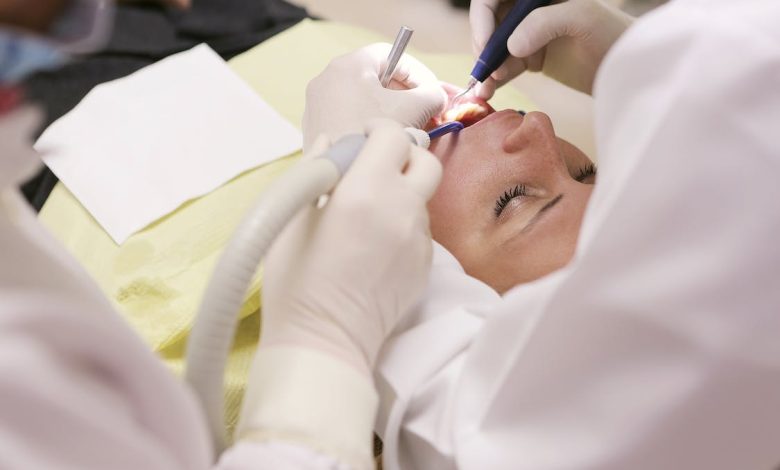Common Reasons Why You Might Need a Tooth Extraction

Growing up, losing a tooth is something that is given much attention to. Actually, losing your first tooth is a milestone and an indication that you are, indeed, growing up. It also implies that the tooth fairy will pay you her first visit. However, losing a tooth is not as exciting for adults and teenagers, especially if it happened as a result of oral surgery for a tooth extraction. But actually, going through a tooth extraction occasionally is important to maintain dental health, since leaving it in place could result in a number of other, frequently far more serious, health issues.
Tooth extraction is a dental procedure that involves removing a tooth from its dental alveolus or socket, which an oral surgeon often performs on his patients. And among the common reasons why a dentist may advise for a tooth extraction procedure include impaction, tooth decay, periodontal and gum disease, trauma, or tooth crowding. Some of these issues, such as tooth decay and some gum illnesses, can be prevented with routine checkups and dental sealants, while others, such as impaction, trauma, and overcrowding, are simply the result of chance.
However, an extraction of a tooth may sound frightening to some people. But then you will be relieved to learn that having a tooth pulled when necessary is considerably simpler than you would think. Not to mention that, in some cases, it can significantly enhance your long-term oral health. And while dentists always work to keep your natural teeth healthy by doing root canals, crowns, and cavity fillings, tooth extractions are occasionally necessary. You may actually need to have your teeth pulled for a number of reasons. Continue reading to learn more.
Severe Tooth Decay
Tooth decay is brought on by plaque and tartar accumulation. The teeth become weak and brittle as a result of these deposits eating away at their enamel. If the situation worsens enough, an infection may form and result in excruciating pain, swelling, and redness. In order to prevent further health issues, it may be essential to totally remove the tooth at this stage and replace it with a dental bridge.
Moreover, poor oral hygiene to genetics can both contribute to severe tooth decay as well. Thus, your dentist may recommend tooth extraction if the decay in your tooth is too advanced to be treated with a filling, crown, or root canal. By doing this, the decay will not spread to nearby teeth. Additionally, if you have tooth decay, your dentist will take every precaution to save your original tooth. This could entail conducting a root canal or drilling and filling a cavity, which occasionally requires covering the tooth with a crown. But in some situations of dental decay, these remedies are simply insufficient, and tooth extractions are necessary.
Wisdom Teeth Removal
The tooth is prone to infection, which can result in gums that are red, swollen, sensitive, or bleeding. People who have this ailment frequently describe pain, swollen jaw muscles, and trouble opening their mouths. The third set of molars, known as the wisdom teeth, are often to blame for this disease since they cannot grow upright in the mouth and instead grow inward toward the other teeth. To avoid further harm to the other teeth in these situations, it is best to have the wisdom teeth removed as soon as possible.
Since wisdom teeth rarely develop perfectly without causing issues with the teeth around them, they are frequently extracted. In addition, wisdom teeth frequently develop at an angle, which makes them impacted in the gums. Infection, pain, and even harm to neighboring teeth may result from your wisdom teeth not being able to erupt through the gums. In order to address these problems, your dentist may decide to remove your wisdom teeth.
Overcrowded Teeth
In addition to causing pain, teeth that are crowded together due to tooth impaction can make smiles that would otherwise be straight and well-aligned crooked. Without the use of braces, your straight smile can be maintained by removing the problematic teeth in the rear of the mouth and creating free space for the remaining teeth to spread out as needed.
Sometimes people discover that their dental arch is too small for their teeth. This could be the result of primary teeth that are still present or wisdom teeth that have erupted and are misaligning the neighboring teeth. You might need orthodontic therapy in addition to tooth extractions to address this problem.
Gum Disease
The fact that gum disease is the main reason for tooth loss surprises a lot of people. In advanced stages of gum disease, the teeth might become loose and fall out as it gradually kills the bone and gums that support them. Actually, periodontal and gum disease are frequently brought on by the accumulation of plaque and tartar on the teeth, much like tooth decay occurs. Gingivitis and periodontitis are the two most typical disorders that can affect a person’s gums and the bone that supports their teeth. Periodontitis is an inflammation of the bones and tissues supporting the teeth, whereas gingivitis is an inflammation of the gums around the teeth.
Gum disease can cause tooth loss if it progresses to that point. This occurs when the gums eventually lose their ability to securely attach the roots in place. You might require a tooth extraction if your teeth are becoming loose because they are not being properly supported. Before the teeth are replaced, the region can heal and the infection can be treated after the teeth are removed.
Fractured Teeth
The teeth are naturally sturdy, but the hard food that are commonly eaten nowadays, as well as damage from sports, car accidents, and other ailments, can cause them to fracture. In addition to being painful, cracked teeth do not perform the way they were intended to in the mouth and must be extracted.
A tooth can typically not be salvaged or fixed if it develops a wide or vertical crack. Most of the time, it’s also extremely uncomfortable, making extraction the ideal option to get rid of the pain and get the area ready for a replacement like a bridge or dental implant.
Key Takeaway
For a simple tooth extraction, the dentist would normally use forceps and a local anesthetic to remove the tooth. An impacted tooth may require a surgical extraction, which entails slicing open the gums and removing the tooth. But this process happens in severe cases. It is likewise reasonable to experience some trepidation when you learn that you must have a tooth extracted. But remember that the process is simpler than it seems and will enhance your oral health for many years to come.



